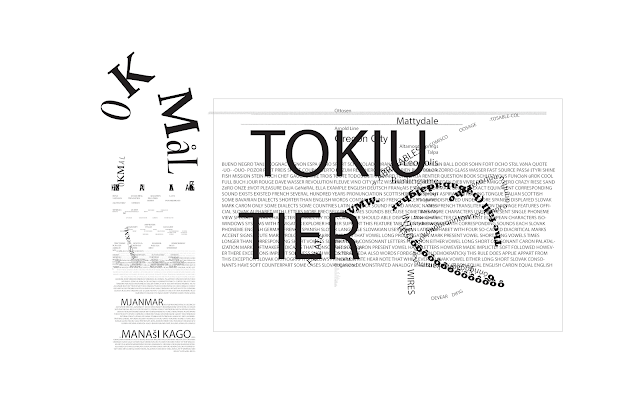In the realm of musical notation, where the boundaries between form and interpretation have long been established, the emergence of WET scores introduces us to a paradigm that defies convention and demands a philosophical inquiry akin to the enigmatic Wittgensteinian language games.
I crafted the term 'WET,' an acronym, standing for 'Words, Events, Text.'
At the heart of my conceptualization lies a profound question that resonates with the Wittgensteinian spirit of linguistic philosophy: What if the very essence of music notation, from its inception, had taken the form of language, both written and spoken, rather than the conventional symbols of notes and rests? The implications of such a transformative shift in perspective are profound, raising questions about the centrality of language within the realm of music culture and education.
In essence, WET scores, present a unique thought experiment. They beckon us to explore the intricate relationship between language and sound, between words and their sonic manifestations. The composer, in this context, becomes a linguistic architect, weaving a tapestry of linguistic cues, notations, and textual events that challenge the performer to engage in a complex dialogue with the score.
Wittgenstein's philosophy, which sought to unravel the nature of language and its multifaceted uses, resonates within the framework of WET scores. Just as Wittgenstein probed the boundaries of language games and their internal logic, so too do WET scores invite performers to engage in a linguistic game that transcends the conventional symbols of music notation. Words and phrases within the score become catalysts for sonic events, where linguistic ambiguity and polysemy come to the fore.
My question echoes Wittgenstein's exploration of the limits of language: What if we embraced the teaching of language as a means to convey sound, ideas, emotions, and performance within music education? This challenges the established hierarchies of notation and prompts us to reconsider the role of language as a dynamic medium of musical expression.
WET scores represent a radical departure from traditional music notation, invoking a philosophical discourse reminiscent of Wittgenstein's language games. They beckon us to venture into the uncharted territory of linguistic experimentation within the realm of music. They stand as a testament to the limitless possibilities that arise when language and sound converge, and it calls upon us to embark on a thought experiment that could reshape the very foundations of music culture and pedagogy. In the world of WET scores, linguistic and musical boundaries blur, inviting us to explore the transformative power of language in the realm of sound and expression.








No comments:
Post a Comment